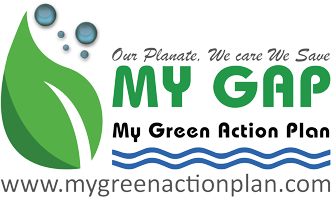The GAP Framework
The GAP Framework
The Green Action Plan (the GAP) framework focuses on 14 (fourteen) areas that comprehensively address the environmental, social and economic aspects of sustainability. Through your GAP you can work out the best way for yourself, your organization, your institution, and your community to tackle each of these principles, with guidelines for all. We’ve compiled years of technical knowledge, hours of research and pioneering practice into an easy process for you to use. You can pick and choose your very own Green Action Plan that interest you, motivate you and make you happy. Each of that action will be related with one or more of these areas. So when you performed that Green Action Activities you will help the Mother Earth in many ways, we also emphasis your personal health and wellbeing because you are part of this Great Planet.
Carbon: Making our activities, workplaces, homes, buildings and spaces more energy efficient and that will contribute to reduce Carbon Emission.
Waste: Reduce waste, reusing where possible, recycle and ultimately sending less waste to landfill.
Transport: Encouraging low carbon modes of transport to reduce emissions, reducing the need to travel, increase walking and physical movements.
Materials: Using sustainable and healthy products, such as those with low carbon foot print, sourced locally, made from renewable or waste resources and with natural base or less chemical used.
Food: Choosing low impact, local, seasonal and organic diets, healthy food preparation and reducing food waste.
Water: Use water more efficiently in all aspect of life and in our personal activities. Ensure efficient water use in our offices, institutions, buildings and homes. Reuse gray water, harvest rain water and reduce water pollutions.
Nature: Create nature where possible and nurture it, protecting and restoring existing biodiversity and natural habitats through appropriate land use and integration into the built environment.
Culture: Reviving local identity and wisdom; supporting and participating in the arts and creative activities.
Heritage: Be respectful to our history and heritage. Educate next generation to be confident with the roots of existence.
Community: Create bioregional economies that support fair employment, inclusive communities and support regional products and growth.
Health: Encourage active, sociable, meaningful lives for good health. Support healthy living environment and proactive mind.
Happiness: Create happiness by active participation in good causes and share successes. Invest time in personal and World well being.
Time: We need to manage our time in a way that we do not waste it in non productive or low productive activities.
Self: We need to invest on our selves, so we become more skilled and productive and contribute to community, country and the Planet.
